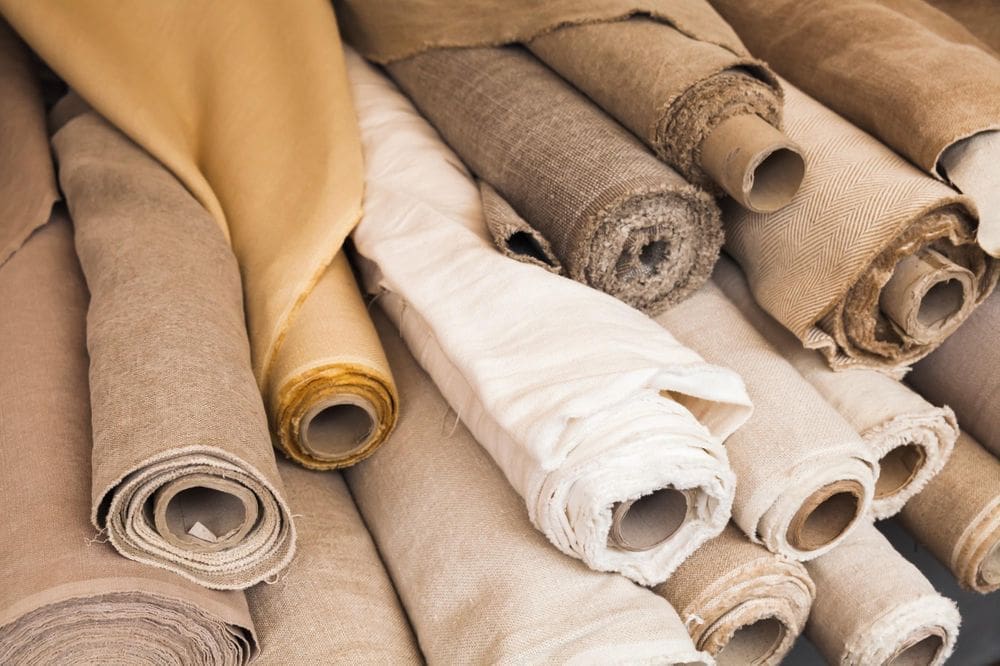Sulochana Cotton Spinning Mills, a textile powerhouse based in Tiruppur, Tamil Nadu, is leading the way sustainably and circularly. Nestled on a sprawling 150-acre campus in Chitambalam, just an hour’s drive from Coimbatore, the facility is a green oasis teeming with over 10,000 trees, 1,000 birding nests, and various eco-friendly initiatives.
At this remarkable facility, Sulochana Cotton Spinning Mills is making a significant impact on the environment by buying 4,000 tonnes of used polyethylene terephthalate (PET) bottles each month and converting them into polyester fibre, yarn, cloth, and garments. The company ventured into PET bottle recycling in 2010 and currently sources bottles from waste aggregators in Tamil Nadu, Kerala, Puducherry, and parts of Karnataka.
The PET bottles, arriving at the Chitambalam campus in three colours – white, green, and brown – undergo a meticulous process of recycling. The labels are removed and sent to cement factories as fuel, while the plastic caps and rings are converted into pellets for various applications. The bottles are thoroughly washed and broken into flakes. To produce coloured polyester fibre or yarn, colour masterbatches are added to the flakes. Notably, no water, salt, or chemicals are used in the dyeing process, making it a cost-effective and time-saving method.
Sulochana Cotton Spinning Mills prides itself on the numerous environmental benefits achieved through its recycling efforts. For instance, each scuba diving jacket produced by the company incorporates 96% recycled polyester filament resulting in the avoidance of 47 kg of carbon dioxide (CO2) emissions, the conservation of 46 litres of water, and the diversion of 40g of waste. Similarly, yoga wear made by the company exhibits similar sustainability attributes.
The company’s commitment to the environment extends beyond PET bottle recycling. Sulochana has established partnerships with several brands to procure cotton garment cut wastes, which are then recycled at another facility near Chitambalam. These reclaimed fabrics are blended with recycled polyester fibre and transformed into new clothes, giving textile waste a new lease on life and preventing it from ending up in landfills.
With these remarkable sustainable practices, Sulochana Cotton Spinning Mills is not only contributing to a greener future but also gaining a competitive edge in the international market. By aligning with nine of the 17 sustainable development goals and aiming to become a 100% carbon-neutral company by 2027, Sulochana demonstrates its dedication to environmental, social, and governance (ESG) targets, a commitment that resonates with global apparel brands and countries. Moreover, by investing in environmentally friendly initiatives and circular fashion, the company sets itself apart, positioning itself as a leader in the industry.
In conclusion, Sulochana Cotton Spinning Mills exemplifies the potential of the textile industry to create positive change. Through its PET bottle recycling efforts, green infrastructure, and collaborations for fabric recycling, the company demonstrates a sustainable and circular approach to fashion. By embracing environmentally conscious practices, Sulochana is making a significant impact on reducing waste, conserving resources, and combating climate change. As the world increasingly prioritizes ESG goals, Sulochana’s commitment to sustainability provides an edge in the competitive global market while fostering a more responsible and eco-friendly textile industry.

